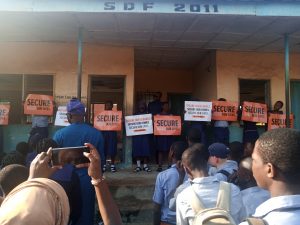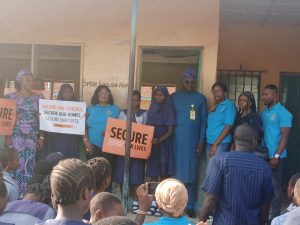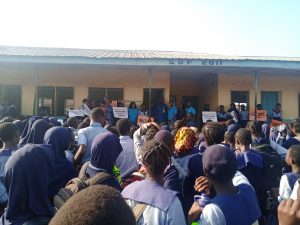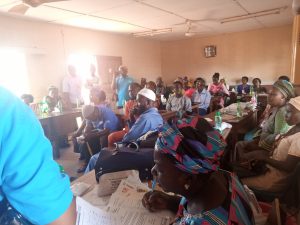As the World mark the 2021 Mental Health Day, a Non-Governmental Organization, the Global Hope for Women and Children Foundation, GLOHWOC, has advised people especially adolescents to always open up, talk to their teachers and parents or go to healthcare centres, to seek help before it gets out of hand.
In a statement issued to commemorate the day, Chief Executive Officer, GLOHWOC, Mrs Christiana Abayomi-Oluwole, also asked people not to keep to themselves but associate well to be able to stay connected.
Mental health is defined as a state of successful performance of mental function, resulting in productive activities, fulfilling relationships with other people, and the ability to adapt to change and cope with adversity.
Abayomi-Oluwole expressed worry that mental health remains one of the most neglected areas of public health, particularly in this part of the world with Nigeria currently facing a global human rights emergency in mental health, having the highest caseload of depression in Africa.

Abayomi-Oluwole said one in six people are aged 10-19 years. Mental health conditions account for 16% of the global burden of disease and injury in people aged 10-19 years.
While quoting statistics showing about one billion people are living with mental disorders all over the world with one person dying every 40 seconds by suicide, she also expressed concern that social stigma, discrimination, and human rights abuses of people with mental health conditions further aggravates the situation and prevents people from speaking out.
She said, “Nigeria currently faces a global human rights emergency in mental health, having the highest caseload of depression in Africa. Statistics show that about 1 billion people are living with mental disorders all over the world and one person dies every 40 seconds by suicide.
“In Nigeria, social stigma, discrimination and human rights abuses of people with mental health conditions further aggravate the situation of mental health disorders and prevent people from speaking out and seeking help for their mental health issues.

“As individuals, taking concrete actions in support of our own mental health, and supporting friends and family who are struggling have a huge impact on mental health and wellbeing.”
As part of the event marking the day, the GLOHWOC CEO and her team visited St. Anthony’s Secondary School where they sensitized the students and their teachers.
The GLOHWOC CEO emphasized the need to make the students aware of the signs and risk of mental health as it affects a substantial percentage of them.
According to Abayomi-Oluwole, One in six people are aged 10-19 years. Mental health conditions account for 16% of the global burden of disease and injury in people aged 10-19 years.
“Half of all mental health conditions start by 14 years of age but most cases are undetected and untreated.”

She admonished the students mostly in their teenage age to avoid peer pressure, or trying “to belong at all cost.”
The CEO also asked them not to feel inferior, but believe in themselves, discover their strength and build on it.
The counselor charged them to eat healthy, reduce presence on social media platforms, drink a lot of water, sleep for at least 8 hours a day, and associate with friends and family members.
While addressing teachers, Abayomi-Oluwole, sought their partnership in securing the future generation by helping them to take good decisions and scale through hard time.
She asked them to always be observant, highlighting some of the signs of mental sickness as getting irritable, anxious over nothing, and isolation.

A cross section of the teachers during the sensitization talk.
The women vanguard appealed to teachers to be friendly with students, in order to make them willing to open up.
“Many of them are frightened to speak out. Some fathers violate their daughters sexually and threatening them not to ever tell anyone or they will die,” she said.
“Please, if you know of any case like this, confide in us. Just let us know and we will take it up. Your identity is protected.
“As I speak, we have many of such cases that we’re handling. Many have been taking to the shelter home that we helped the Kwara State Government set up when we came to the state. Many of the victims are now doing well and getting over the trauma.”
Join our twitter community :


